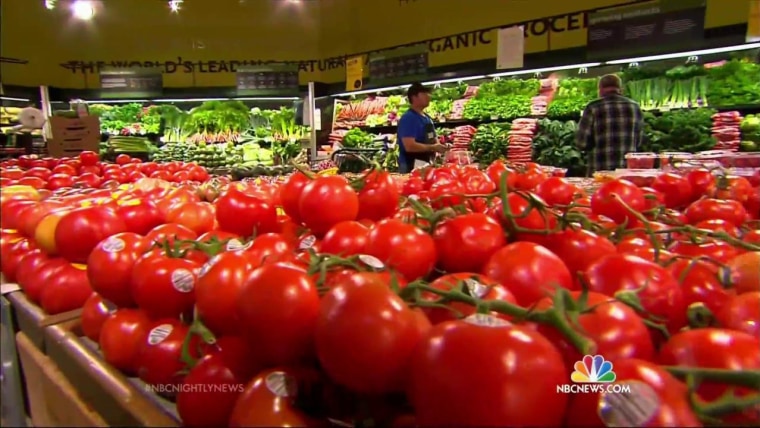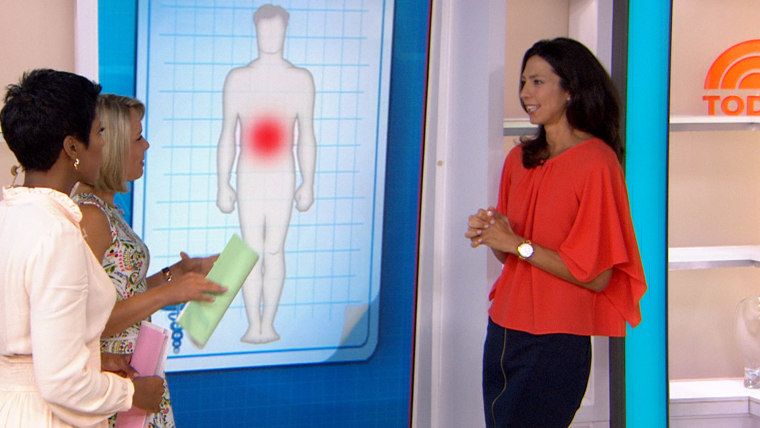What to Do When Food Goes Down the Wrong Pipe
There's really no good reason to picnic. But here we are in full-on picnic mode. That means that bacteria, viruses and parasites are ready to party in our intestines and make us feel like crap for a day, maybe 10.
Unfortunately, there's something about dining in the great outdoors that makes us forget some basic food hygiene. Here are some common myths about food poisoning, and what you can do to keep yourself out of the bathroom or the ER for the rest of the summer.

1. It can't happen to me.
Of course it can. Food poisoning is one of the most common maladies in the U.S. About one in six of us get sick by consuming contaminated foods or beverages, according to the CDC. That translates to about 48 million people, most of whom get better on their own after feeling like crap (pun intended) for a day or two. But about 128,000 are hospitalized, and 3,000 die.
2. If it's food poisoning, I'll get sick quickly.
Maybe. Maybe not. Staphylococcus aureus (Staph) will make you sick in about one to six hours. Noroviruses will hit you in about 12 to 48 hours. E. coli O157:H7, a particularly nasty bug linked to under-cooked beef (especially burgers), raw fruit and veggies, contaminated water and non-pasteurized beverages, can take one to eight days to hit.
3. It's hot (or cold) enough.
Probably not. That's because many of us blow off the so-called "danger zone," a time when foods set out the welcome sign for bacteria, explained registered dietitian Tamara Duker Freuman. The danger zone is between 40 degrees and 140 degrees Fahrenheit. Foods should never be left in the danger zone for more than two hours, or one hour if the outdoor temperature is about 90 degrees Fahrenheit.
People also make a huge mistake in foregoing a thermometer, thinking that "...things are hot enough or cold enough," said Freuman, who had her own bout of food poisoning after eating at a lukewarm Indian buffet. "Foods can get in that danger zone quickly," she said. "The rule is if in doubt, throw it out."
4. Fruits with rinds are always safe.
Nope. And even injecting your watermelon with vodka isn't going to make it safer. That's because the most serious potential problem, listeria, could be right on the rind, not in the flesh of the fruit. An estimated 1,600 people get slammed each year and 260 die. Watermelons, honeydew and cantaloupes can harbor listeria bacteria, but actually any fruit can be risky, said Dr. Yanina Purim, medical director of the emergency department at Rush University Medical Center in Chicago.
"It's always smart to wash the fruit with an antibacterial product, and even if you peel it, wash it first," she said.
5. It's the mayo's fault.
No, it isn't. So stop dissing the mayonnaise. The creamy spread may actually ward off some pathogens because of its high acid content. (We're talking about commercial mayo, not the stuff you whipped up at home with no quality control and unpasteurized eggs.)
But mix the mayo with potatoes for a yummy potato salad and what you've created is a potential cross-contamination. If you do get sick, the bug you may get is Staph aureus, said infectious disease specialist Dr. Keith Armitage, professor of medicine at University Hospitals Cleveland Medical Center. Risks rise if your salad was prepared by someone who has a staph skin infection, or if it was stored at room temperature for too long. Generally this type of food poisoning causes vomiting, diarrhea and cramping that come on quickly, but only last about a day or two.
6. Food poisoning symptoms are always the same.
Nope. What symptoms you experience are linked more to what pathogen you may have gorged on, said Dr. Robert Brackett, director of the Institute for Food Safety and Health at Illinois Institute of Technology.
Let's talk Clostridium perfringens. Some strains of this bacterium produce a toxin that cause diarrhea, lots of diarrhea. You can get it about eight to 12 hours after eating things that are cooked in large quantities and kept warm for a long time before serving like beef, poultry, gravies and dried or pre-cooked foods. If there is good news, there is no fever or vomiting and you can't pass it to anyone else. You are alone in your misery for about a day.

Then, of course, there's salmonella, which can cause a combo-platter of symptoms like diarrhea, abdominal cramps and fever within six to 72 hours. You might even get chills and a headache. It affects more than 40,000 people a year, or even more since mild symptoms aren't reported. But some people may develop reactive arthritis. "There's joint pain, eye irritation, painful urination," said Armitage, adding that it can lead to chronic arthritis.
7. Water will solve all my woes.
Nope. "When you're vomiting and have diarrhea you get dehydrated, which means you not only lose water but you lose sugar and salts," said Armitage. So try sipping on drinks that contain electrolytes, as well as some water and broth. And resist the urge to take an anti-diarrheal drug, unless you talk to your doctor first. Once you keep fluids down, you're probably going to be very hungry.
"The worst thing a person can do is have a huge meal, even though they really want one," he said. Opt for bananas, rice, applesauce and toast.
8. I don't need a doctor.
That's not always the case. Although most cases of food poisoning are self-limiting, meaning they will resolve on their own, some may be serious, especially for the very young, older folks and those with other health issues.
If you have blood in your stool, a fever, you've been vomiting repeatedly or had diarrhea more than a couple of days, go get checked out, said Armitage, adding that treatment may include antibiotics (depending on the pathogen) and fluid replacement.
9. OMG, my picnic is out to kill me.
No, it isn't. "All people really have to do is play it safe," said Brackett, who is not planning on avoiding any picnics this summer. His advice: Go for burgers that are well done, keep cold foods cold and hot foods hot, keep surfaces clean and everything securely wrapped so you don't cross-contaminate foods.
And don't forget to wash your hands. Then just have a good time!
"So many people get food poisoning and most of the time it's not going to be a huge issue if you're an otherwise healthy person," said Purim. "But trying to prevent it in the first place is what's important. Because even when it's a mild case, it can just make you so miserable that you think you may be dying — or that you simply want to die."
What to Do When Food Goes Down the Wrong Pipe
Source: https://www.today.com/health/food-poisoning-9-myths-we-all-get-wrong-t113321